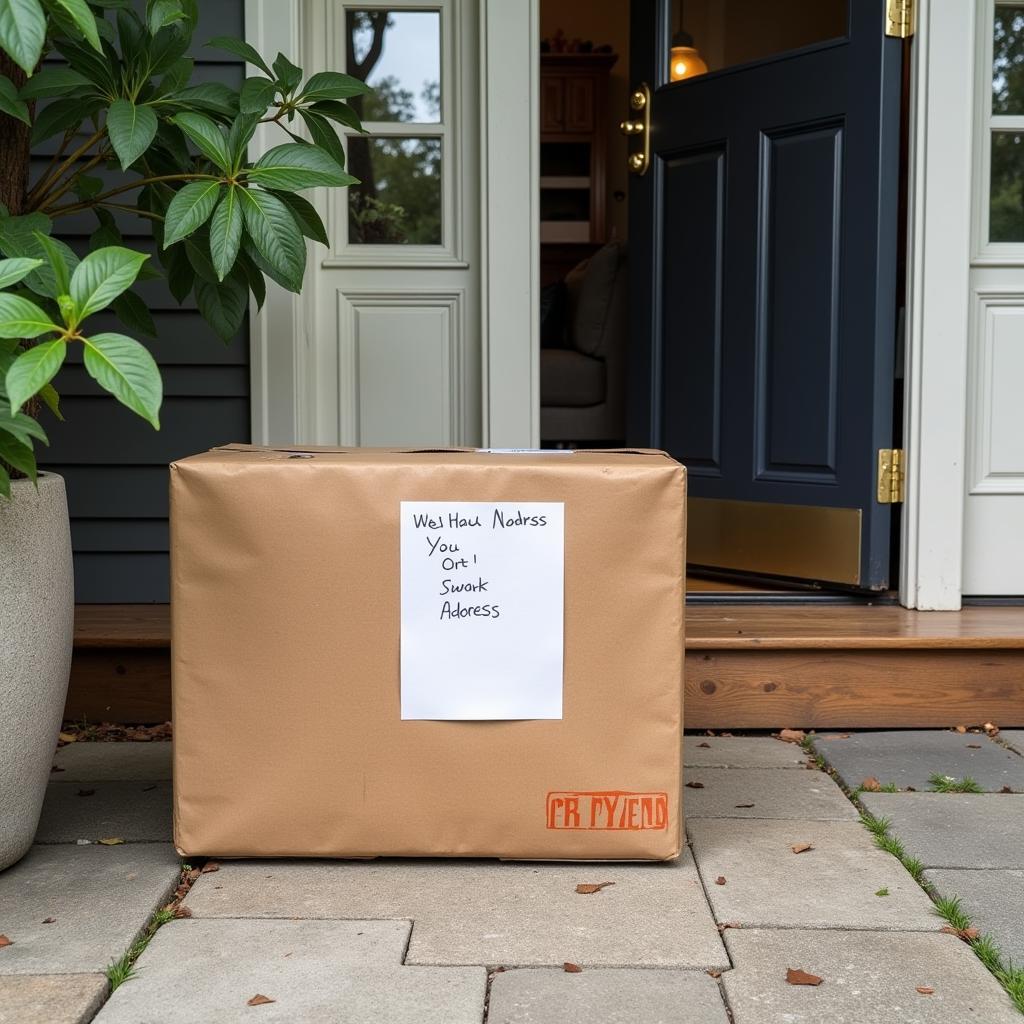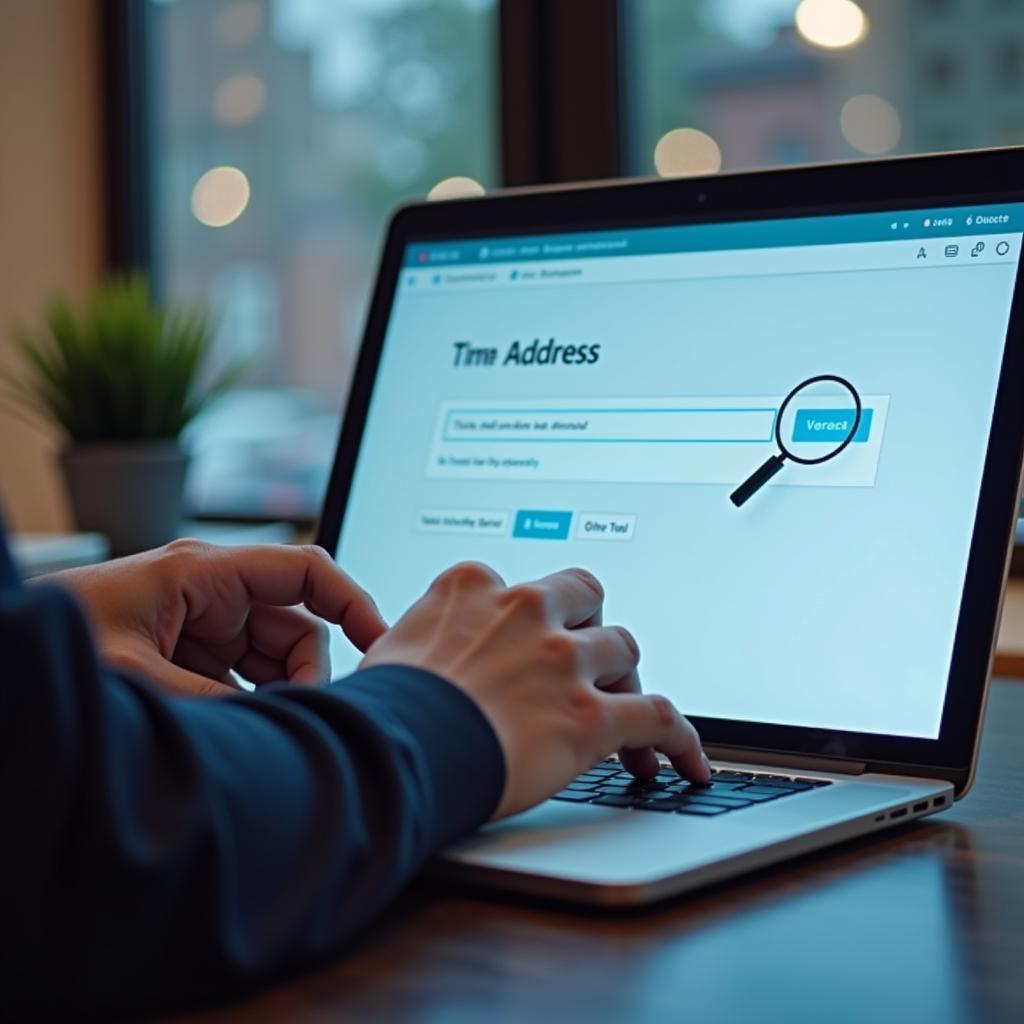The internet has made it easier than ever to access goods and services, but it has also opened up new avenues for fraud and deception. One such practice is the use of fake addresses, a growing problem in Pakistan with serious implications. Whether for online shopping, creating fake accounts, or concealing one’s identity, the allure of anonymity behind a “Fake Address Pakistan” is tempting for some, but the consequences can be severe.
 Online shopping delivery to a fake address
Online shopping delivery to a fake address
Why Do People Use Fake Addresses in Pakistan?
The motivations behind using a fake address are diverse and often depend on the context:
- Ecommerce and Online Shopping: Some individuals use fake addresses to avoid paying delivery fees, exploit discounts offered to specific locations, or for fraudulent activities like receiving goods without paying.
- Social Media and Online Platforms: Fake addresses can help create fictitious profiles on social media platforms, dating apps, or forums, often for malicious purposes like spamming, scamming, or cyberbullying.
- Financial Transactions: Using a fake address can facilitate financial fraud, money laundering, or tax evasion by concealing one’s true location and identity from financial institutions.
- Privacy Concerns: In certain situations, individuals may feel compelled to use a fake address to protect their privacy, especially if they fear harassment, stalking, or other threats.
The Legal and Ethical Implications
While the reasons for using a fake address might seem justifiable to some, the legal and ethical implications are significant:
- Violation of Privacy and Data Protection Laws: Using someone else’s address without their consent is a breach of their privacy and may violate data protection laws, leading to legal action.
- Fraudulent Activities: Using fake addresses to deceive businesses or individuals for financial gain is illegal and can result in criminal charges, fines, or imprisonment.
- Compromised Security: Providing false information online can jeopardize personal security, making individuals vulnerable to identity theft, phishing scams, and other cyber threats.
- Undermining Trust and Accountability: The prevalence of fake addresses erodes trust in online platforms and transactions, making it more challenging for businesses to operate ethically and for users to engage safely.
How to Identify and Avoid Fake Addresses
 Verifying an address online
Verifying an address online
Detecting fake addresses can be difficult, but several strategies can help:
- Address Verification Services: Businesses and individuals can use online address verification tools that validate addresses against official postal databases, flagging potential discrepancies.
- Geolocation Technology: Some platforms utilize geolocation technology to determine a user’s approximate location based on their IP address, which can help identify mismatches between declared and actual locations.
- Two-Factor Authentication: Implementing two-factor authentication for online accounts adds an extra layer of security, making it harder for individuals using fake addresses to access sensitive information.
Protecting Yourself and Promoting Ethical Practices
Combating the use of fake addresses requires a multi-pronged approach:
- Awareness and Education: Raising awareness about the ethical and legal implications of using fake addresses is crucial, encouraging individuals to consider the consequences of their actions.
- Strengthening Online Security Measures: Implementing robust security measures, such as two-factor authentication, address verification, and fraud detection algorithms, can deter the use of fake addresses and protect users.
- Promoting Responsible Online Behavior: Fostering a culture of responsible online behavior, emphasizing honesty, transparency, and respect for privacy, is essential in curbing the prevalence of fake addresses.
Conclusion
The issue of fake addresses in Pakistan is complex and multifaceted, with serious implications for individuals, businesses, and society. By understanding the motivations, recognizing the risks, and implementing effective countermeasures, we can work towards creating a safer, more secure, and trustworthy online environment for everyone.
FAQs
- What should I do if I suspect someone is using my address fraudulently?
- Report it to the relevant authorities, such as the police or cybercrime division, and notify the platform or business involved.
- Can I use a P.O. Box address as my online address?
- While not illegal, using a P.O. Box might raise flags for some services, and it might not be suitable for all online transactions.
- Are there any legitimate reasons for using a different address online?
- Yes, if you have legitimate safety concerns or require anonymity due to specific circumstances, using a different address might be justifiable. However, it’s crucial to ensure your actions are legal and ethical.
For further assistance and guidance regarding fake address concerns in Pakistan, please contact us:
Phone: +923337849799
Email: [email protected]
Address: Dera Ghazi Khan Rd, Rakhni, Barkhan, Balochistan, Pakistan.
We have a dedicated customer support team available 24/7 to assist you.